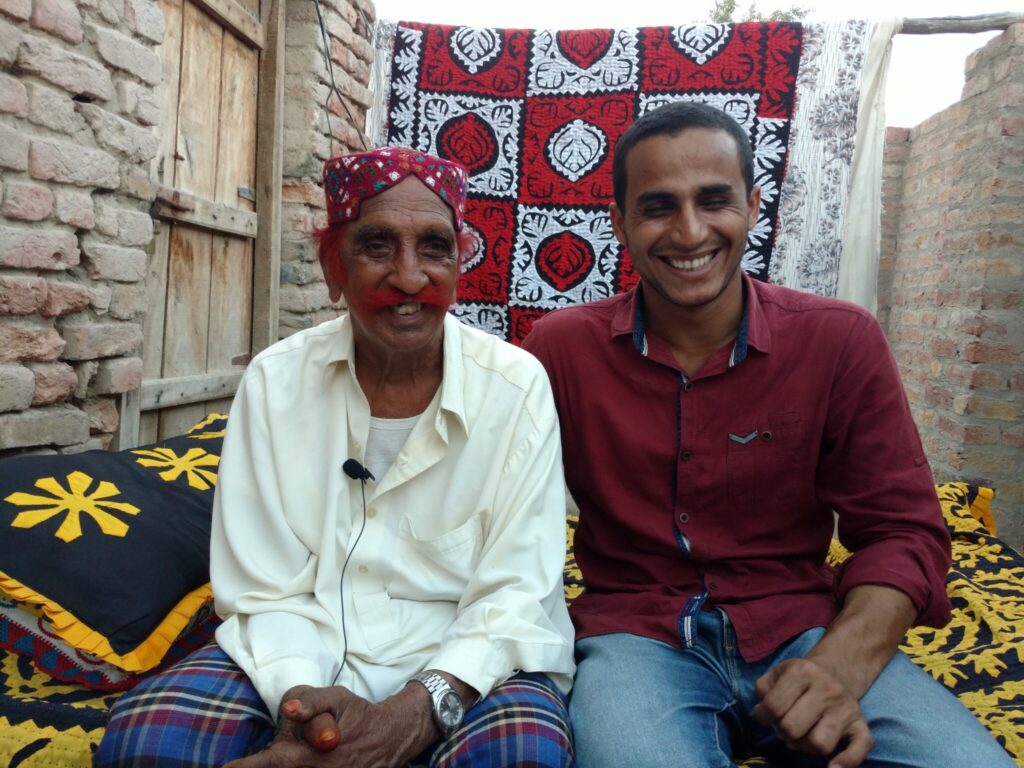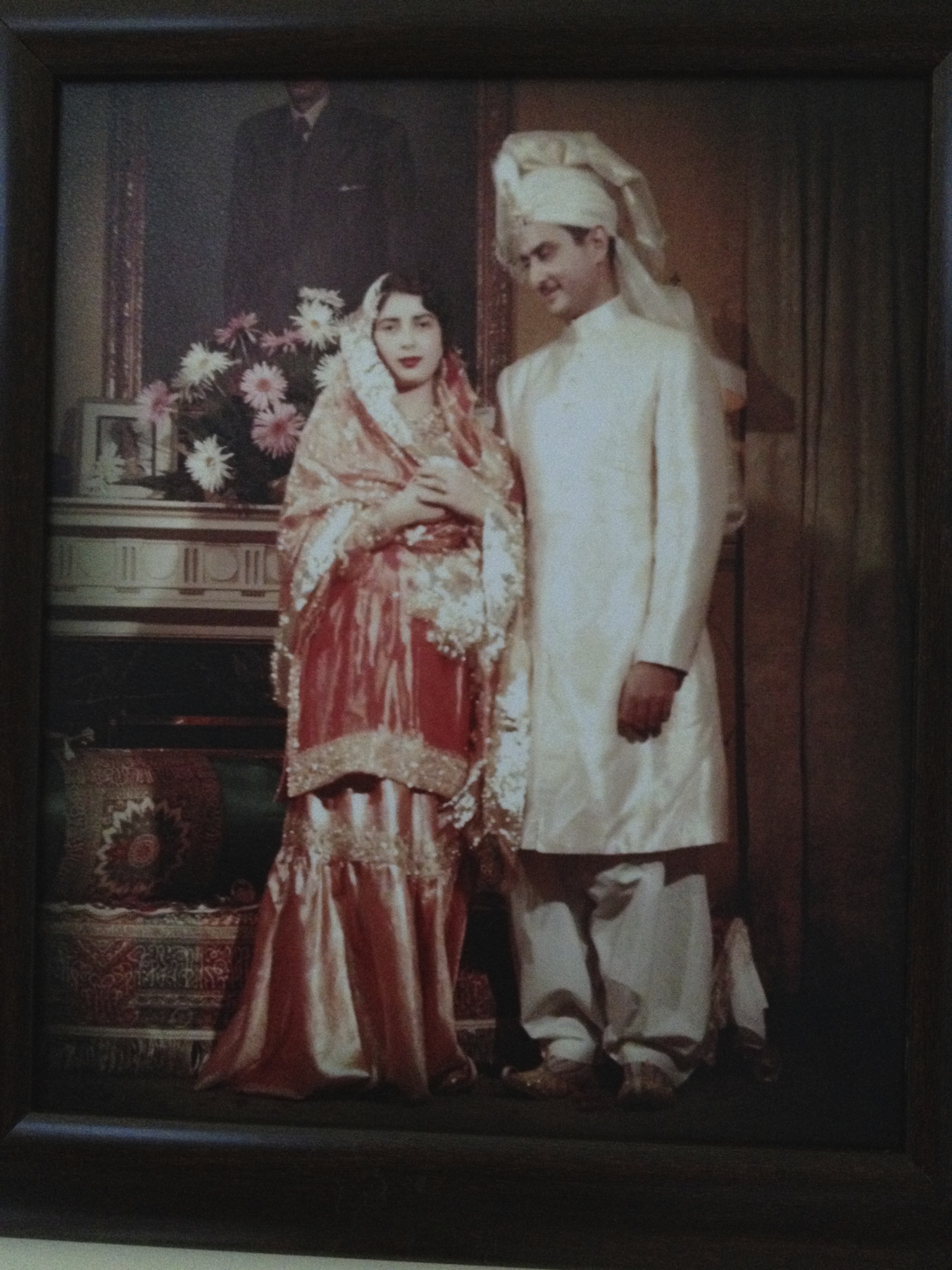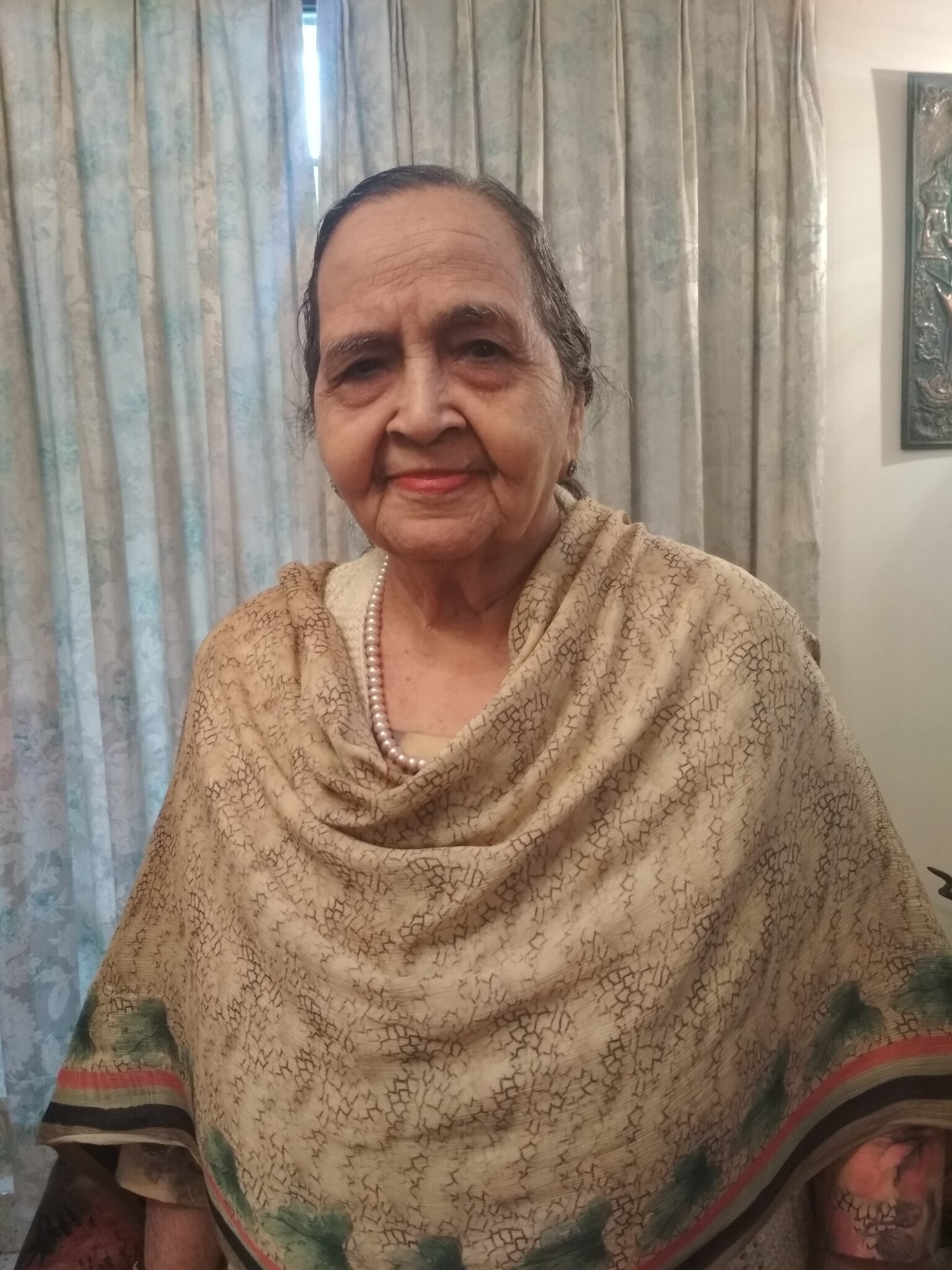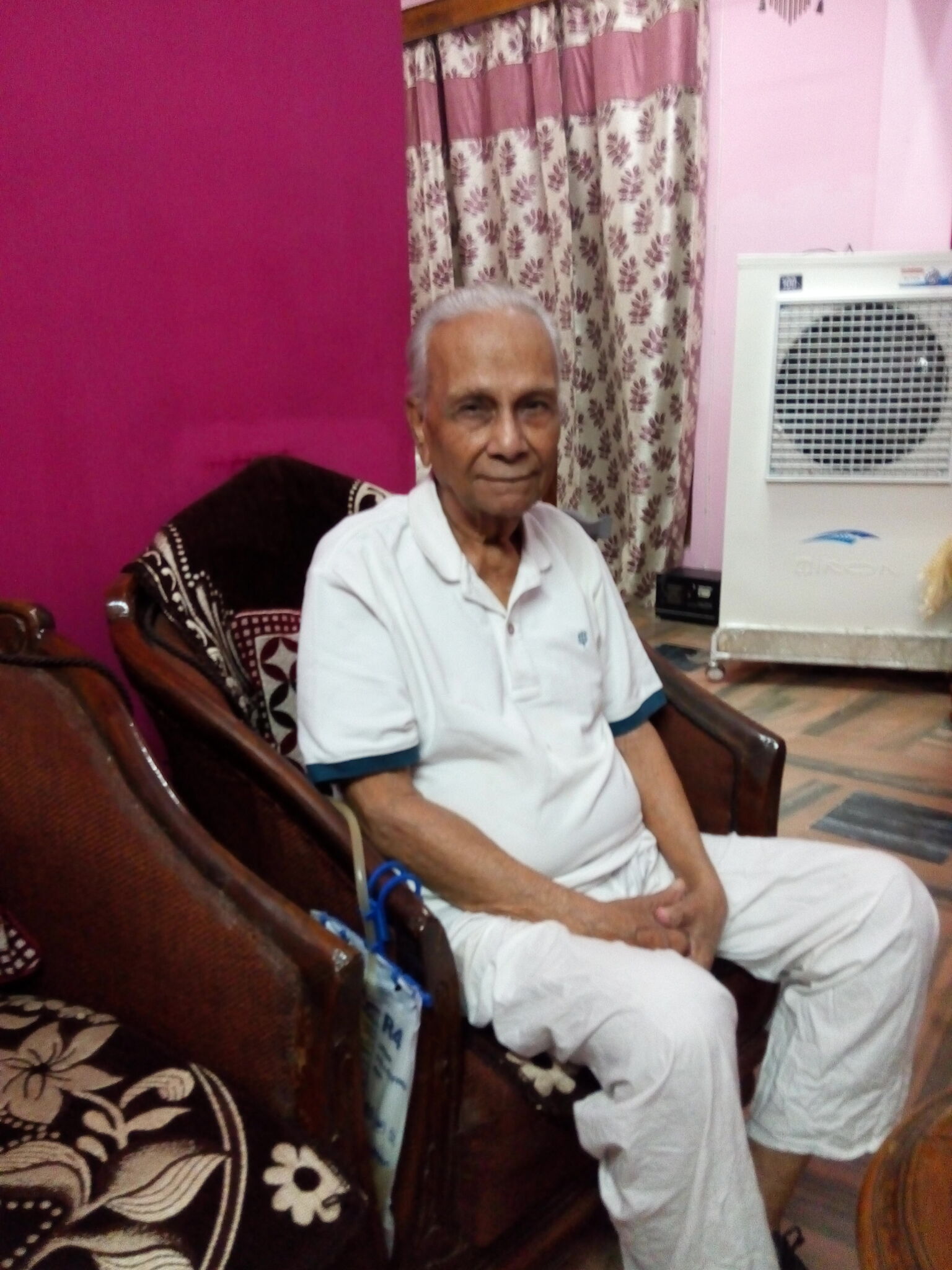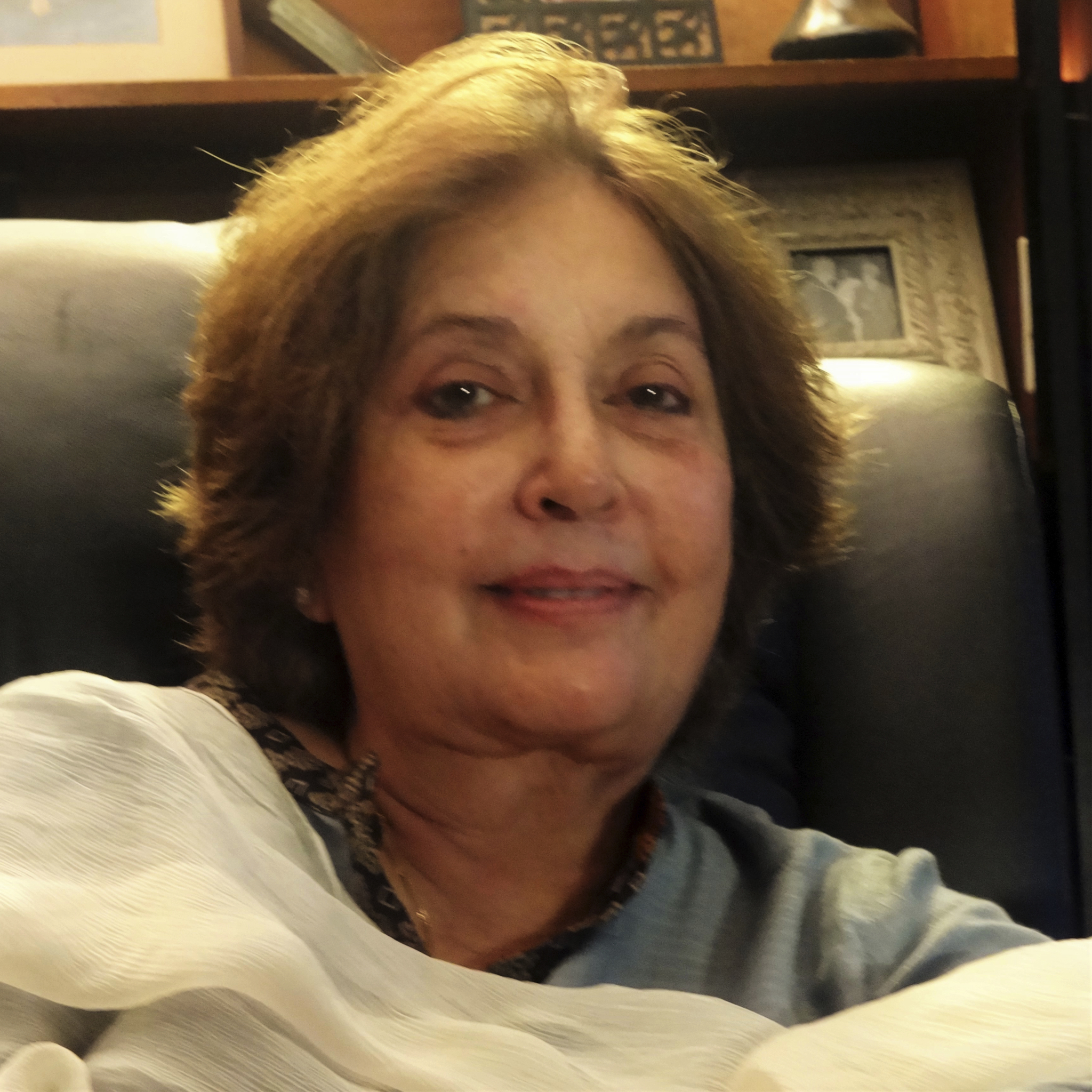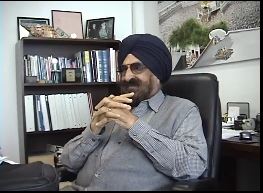Name: Khabbar Khan Seelro
Interviewed By: Murtaza Kharani
Interview Date:
Interview Location:
Story:
I was born in 1939 in a village called Pari Jo Shahar, near the city of Shahdadkot in Sindh Pakistan. It is said that 200 years ago a man named Shahdad Khan, from the Seelro caste, was the first man to come to this barren plain, which is now the town of Shahdadkot, and the town is named ‘Shahdadkot’ after him. My ancestors once owned almost half of the city; however, the lands were either sold or taken over by other powerful people. My name, ‘Khabbar’, has its own history. My maternal grandfather’s name was Ali Muhammad. When a son was born to a relative of my mother, the son was named Ali Muhammed in honour of the grandfather. In return, when I was born, my mother named me ‘Dhinano’, after the father of the above-mentioned relative. Due to illness, the child, named Ali Muhammad, passed away. Seeing this, my mother was frightened for her own child and changed my name from Dhinano to Khabbar. So, today I am Khabbar Seelro, and I am the second child among three brothers and two sisters.
My parents were farmers. My father was a wise moulvi (imam) and a peace-loving person. My mother was a hard-working woman who loved her children above all else. She managed household chores with one hand, while holding a baby with the other. In those days, necessities like water, food, and fuel for the fire were hard to obtain. From my birth until adulthood, our family moved frequently, either because of natural disasters or human conflicts. I was still a baby when the floods forced my family to leave Pari Jo Shahar and move to a town 10-15 km north of Shahdadkot called Imam Bux Jamali. My childhood was spent in poverty, yet I recall many moments of real joy. I used to play games with my siblings and took care of my cattle. I remember going with my father to the bazaar (market), which had a street where goldsmiths practised their trade. The only shop in our village was owned by a man named Qeemat, who once gave me a handful of sweets. As my father bargained with Qeemat over the price of some goods, Qeemat told me, “Now you worry about the paisa (one-hundredth of a rupee); when the rupee comes, you will have to worry more.”
The time to worry came when Partition occurred. In the rural area where my family and I lived, news travelled by word of mouth. I heard that Hindus were leaving the country, and I witnessed the ravages of Partition when I again visited the bazaar, which was in ruins because most of the Hindu shopkeepers had gone, including Qeemat. I saw that the town and the bazaar had lost their glory. They now are just a tale of the past, told with sorrow and regret. After Partition, my family had to leave their village due to a disagreement between their relatives and another group of people. We lived for a while with my father’s friend before settling in a village known as Jandah. I made my living shepherding cows but when my family settled in Jandah, I left the cows in the care of my brother and turned to goat herding. A school was opened in the village, and I was forced to attend; however, I ran away to tend my goats.
As a young person, I’m told I had a charming singing voice, which enchanted everyone who listened. When my herd grazed, I sang songs. Farmer women stopped their work to listen to my melodies. Because of my voice, I was invited to sing wedding songs at the marriage ceremonies of my relatives.

